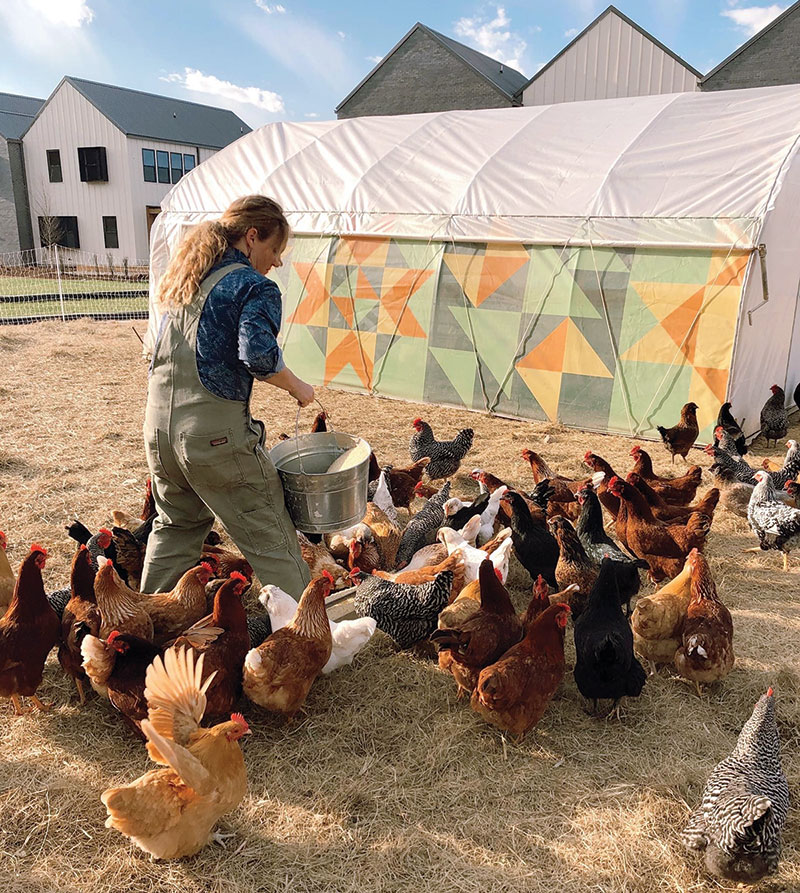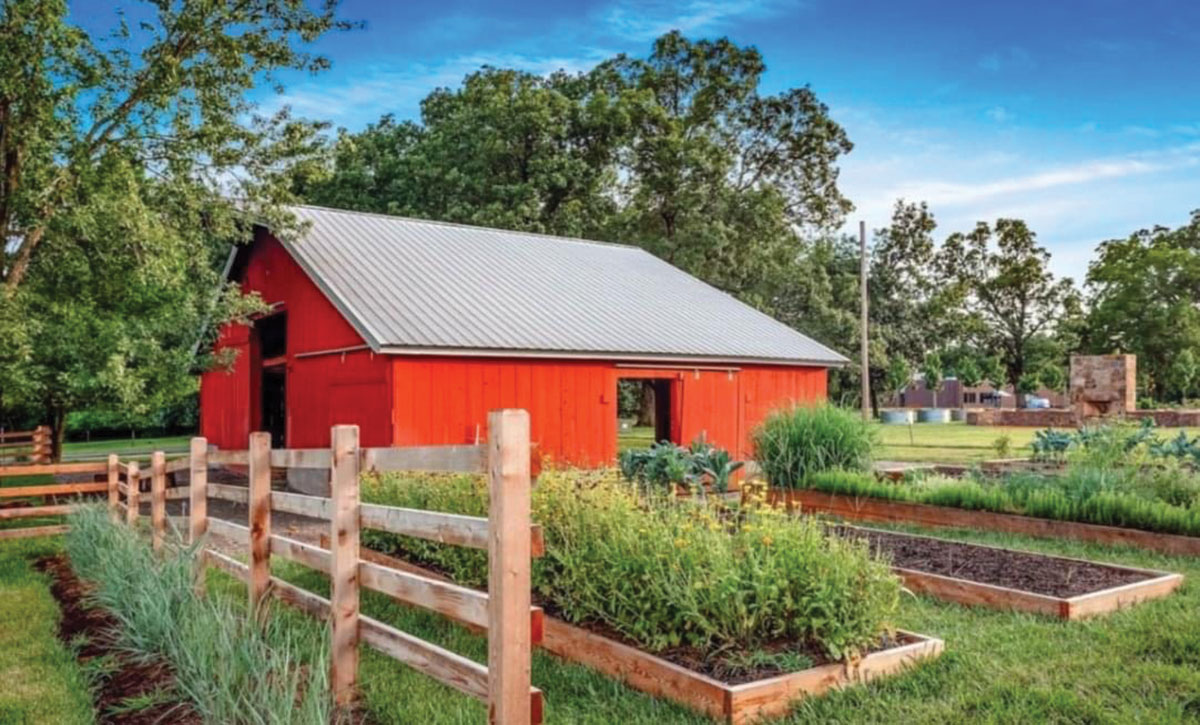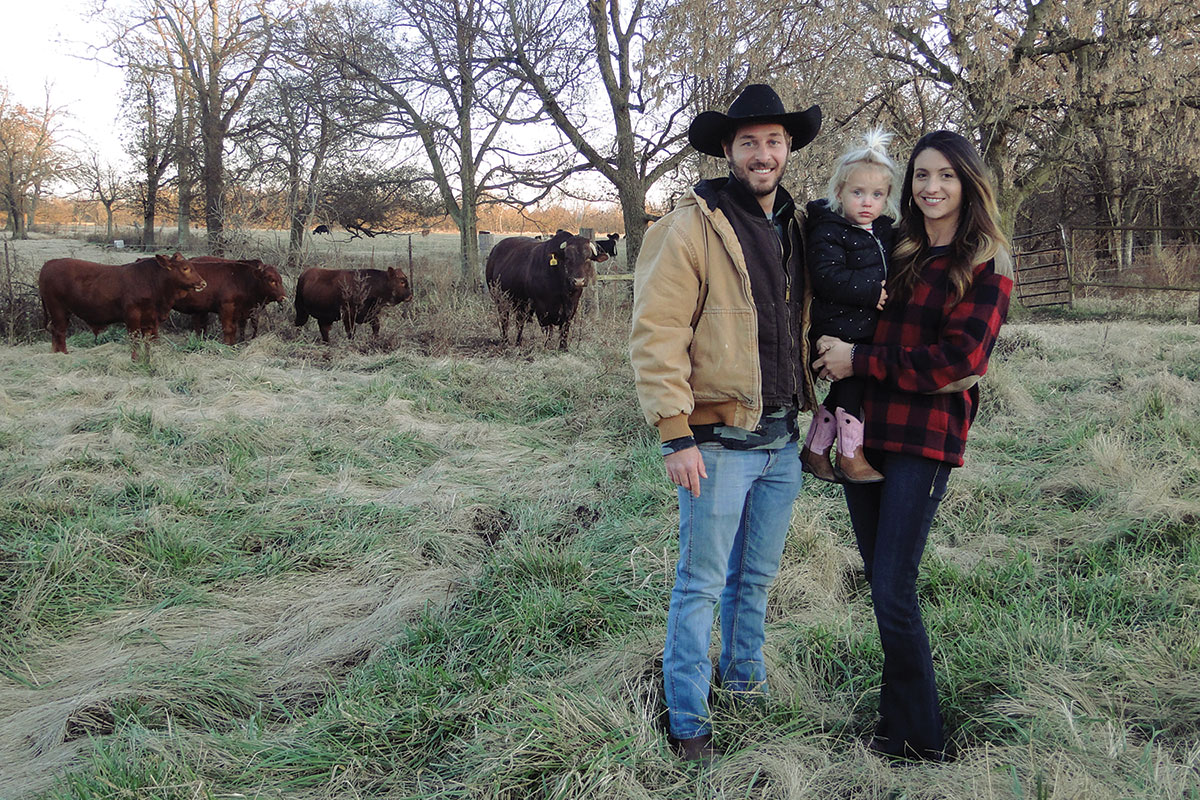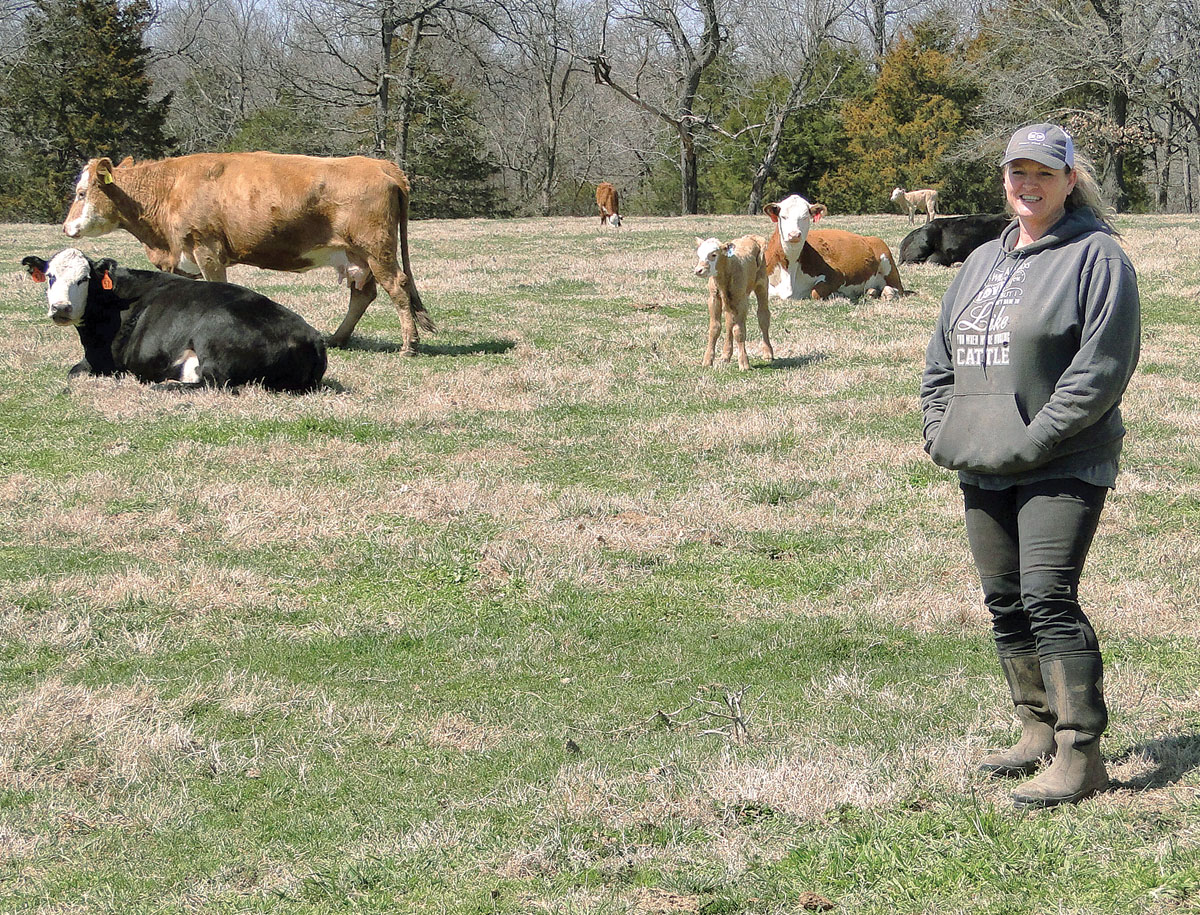
Developer brings agriculture to a growing neighborhood through an ‘agrihood’
Red Barn Bentonville, Ark., located just minutes from downtown in Bentonville, is not your typical apartment complex. It is called an “agrihood” for good reason – it features a working urban farm.
Founded in 2018, the farm at Red Barn Bentonville, owned by Matt O’Reilly of Green Circle Projects, is designed and managed to grow and raise many of the things a development resident might shop for in the produce aisle – heirloom tomatoes, garlic, celery, herbs, lettuce, Asian greens, cut flowers and free range eggs, to name a few. Residents of the 138-unit development can purchase farm products from an on-site farm stand or arrange to have farm-fresh goodness delivered right to their door.
The farm at Red Barn is a Certified Naturally Grown operation; the health of the land is the foremost priority for the farm team. The Red Barn development and farm are both situated on the location of an old cattle farm that had been overgrazed for years.
That, along with the farm being located on a slight hilltop, immediately highlighted the need to build and restore the soil. Utilizing cover crops to aerate the rocky clay soil and add organic matter has been imperative to creating a hospitable growing environment for crops. Tarping the soil has also helped the farm team reduce weed pressure and add additional organic matter by breaking down the cover crops right into the soil.
“We are essentially using an in-place composting system to create soil,” Lizzie Duncan, Red Barn farm manager, explained. The Red Barn farm has a system of two seasonal extension high tunnels, which allows them to grow produce year-round for the development and surrounding Bentonville community. The high tunnels are also an integral part of the farm’s plot rotation program to keep the hard-won soil disease free. There are no pesticides or synthetic fertilizers utilized in the farm’s production.
“All inputs on the farm are thoughtfully chosen and produce the healthiest produce,” Lizzie said.
A multipurpose farm building is a newer addition to Red Barn’s urban farm, and has allowed the farm team to streamline production. The building features a greenhouse, a seed germination room, work rooms, a wash and pack station and two walk-in coolers. The systems and equipment in the building allow the farm crew to process up to a few hundred pounds of produce per harvest.
The Red Barn farm is also home to approximately 200 laying hens that produce free-range pastured eggs. The hens are moved to fresh grass around the development with portable fencing as part of their pasture rotation program, and they are a huge hit with the development residents. Two Great Pyrenees are on site for flock and crop protection from deer and other wildlife that live in the neighboring woods.
Residents and community members can purchase produce and eggs from the on-site farm stand within the Red Barn development and can also arrange delivery or pre-bagged pickup. A handful of local farm-to-table restaurants and grocery stores also carry Red Barn’s products, including Oven and Tap, Preacher’s Son, Blake Street, Aoi Sushi, Two Friends Book Shop and Café and Ozark Natural Foods Co-Op. Red Barn also hosts quarterly farm to table dinners inside the development’s historic barn; local chefs work with the farm team to highlight the food they grow and raise.
Residents and community members have many opportunities to learn about and get involved with the farm; the farm’s volunteer program encourages anyone to step in and do some farming on a daily, weekly, or monthly schedule. Folks can also attend a Farm Learning event where the team gives participants an in depth look at production methods.
Future plans for the Red Barn farm include a hive system to produce on site honey, pickled products to utilize surplus produce, as well as cooking classes to teach participants how to utilize Red Barn’s products to further the sense of community centered around the farm.







